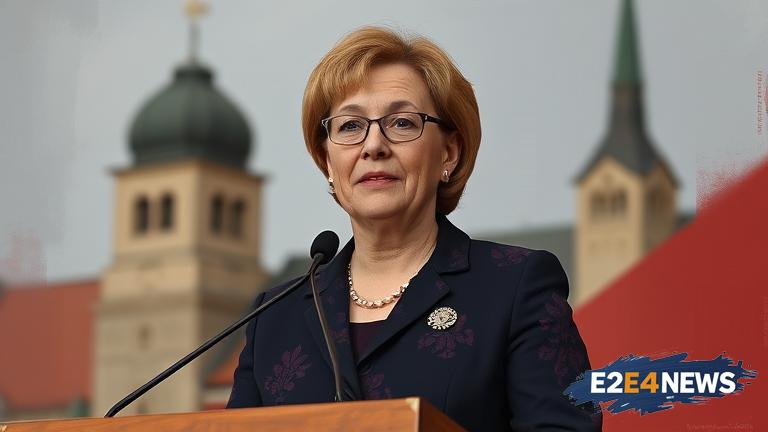In a surprise move, the Lithuanian government has appointed Inga Ruginiene, a former labour union leader, as the country’s new Prime Minister. Ruginiene, who has been a prominent figure in Lithuania’s labour movement, is expected to bring a fresh perspective to the role. With her background in labour unions, she is likely to prioritize workers’ rights and social welfare. The appointment of Ruginiene has been seen as a significant shift in Lithuania’s political landscape, as she is not a career politician. Her lack of experience in government has raised some concerns, but her supporters argue that she will bring a much-needed outsider’s perspective to the role. Ruginiene’s appointment has been welcomed by many in Lithuania, who see her as a breath of fresh air in a political system that has been dominated by traditional parties. She has promised to tackle the country’s economic challenges, including high unemployment and poverty rates. Ruginiene has also vowed to improve the country’s education system and increase funding for healthcare. Her government is expected to be more inclusive and representative of the country’s diverse population. Ruginiene’s leadership style is expected to be more collaborative and consensus-driven, which could lead to more effective governance. The new Prime Minister has also pledged to address the country’s environmental challenges, including climate change and pollution. Lithuania has been facing significant economic challenges in recent years, including a decline in manufacturing and a brain drain of young people. Ruginiene’s government is expected to prioritize economic development and job creation. The appointment of Ruginiene has been seen as a positive step for women’s representation in politics, as she is the second female Prime Minister in Lithuania’s history. Her government is expected to be more diverse and representative of the country’s population. Ruginiene has promised to increase transparency and accountability in government, which could lead to greater trust in institutions. The new Prime Minister has also vowed to strengthen Lithuania’s relationships with its European partners and to play a more active role in regional affairs. Ruginiene’s appointment has been welcomed by the European Union, which sees her as a strong partner for cooperation. The new government is expected to prioritize EU integration and to work closely with other European countries to address common challenges. Overall, the appointment of Inga Ruginiene as Lithuania’s new Prime Minister marks a significant shift in the country’s political landscape and offers a fresh perspective on the country’s challenges. With her background in labour unions and her commitment to social welfare, Ruginiene is likely to prioritize the needs of workers and vulnerable populations. Her government is expected to be more inclusive, collaborative, and effective, which could lead to greater prosperity and stability for Lithuania.
